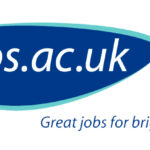Fully Funded EPSRC and ProColl PhD Scholarship: Animal Free Collagen, Characterisation and Control
Job Description
Funding providers: EPSRC and ProColl
Subject areas: Biomaterials, Biomechanics, Cell Culture, Rheology, Advanced Experimental Mechanics
Project start date: 1 October 2024 (Enrolment open from mid-September)
Project description:
Collagen is the focus of a lot of biomedical engineering research, harnessing the structural properties of collagen in applications such as tissue engineering. A lot of applications of collagen use it in the form of a hydrogel, with and without chemical cross linkers, where it forms a system of fibrils, trapping an aqueous environment for tissue growth. The project partner ProColl in collaboration with Swansea University have developed novel animal free collagens including Type I, II and III collagen, which are found in different tissues of the body. The research community and medicine are keen to use animal free materials, which reduce disease risk, inconsistency and negate ethical issues (aligning with the principles of the 3Rs). The project will answer this challenge and develop novel animal free hydrogels with mechanical characteristics that can be tuned for different applications by changing the type of collagen and chemical crosslinkers. Further novelty and rigour will be achieved by using a multiscale approach combining rheological methods to characterise the gelling of hydrogels alongside bulk scale measurements of the mechanical properties. This characterisation will inform the formulation and thus control of the hydrogel properties and impact on cell growth, which will be studied using the recently established biomedical engineering cell culture facility.
The successful candidate will use a variety of equipment, including mechanical test devices and state-of-the-art rheometry. The candidate will also have access to a range of microscopy for imaging microstructures. Atomic force microscopy will also be accessed to interrogate structure-property relationships of formulations on the microscale. The performance of biomaterials in biomaterial phantom applications will be assessed, maximising wider resource in phantom organ testings within the Biomedical Engineering Simulation and Testing (BEST) Lab.
The sponsoring company will be engaged throughout in developing ideas and applications with regular reporting expected throughout the project by the successful candidate. Collaborating research groups and stakeholders from across disciplines in healthcare and industry will regularly engage throughout to broaden the development opportunities of the candidate. By the end of the project, the candidate will have acquired a portfolio of skills and external collaborators that will provide a strong footing for future careers in either academia or industry.
Eligibility
Candidates must hold an Upper Second Class (2.1) honours degree in Engineering or similar relevant science discipline. If you are eligible to apply for the scholarship (i.e. a student who is eligible to pay the UK rate of tuition fees) but do not hold a UK degree, you can check our comparison entry requirements. Please note that you may need to provide evidence of your English Language proficiency.
We also welcome applications from graduates in computational science or mathematics.
Due to funding restrictions, this scholarship is open to applicants eligible to pay tuition fees at the UK rate only, as defined by UKCISA regulations.
Additional Funding Information
This scholarship covers the full cost of tuition fees and an annual stipend at UKRI rate (currently £18,622 for 2023/24).
Additional research expenses will also be available.

